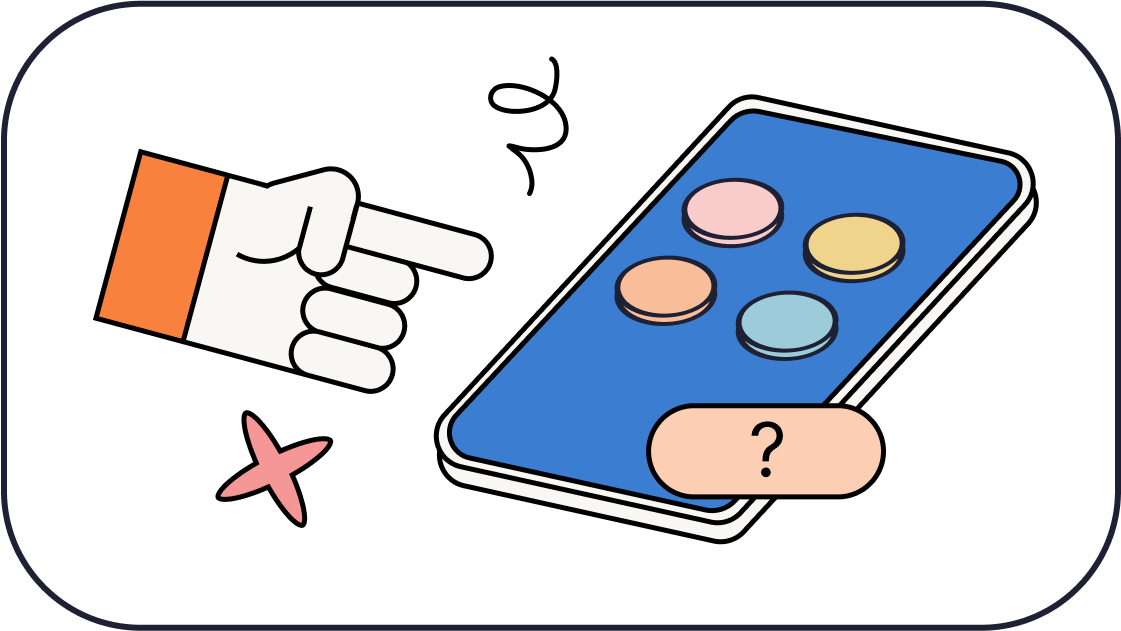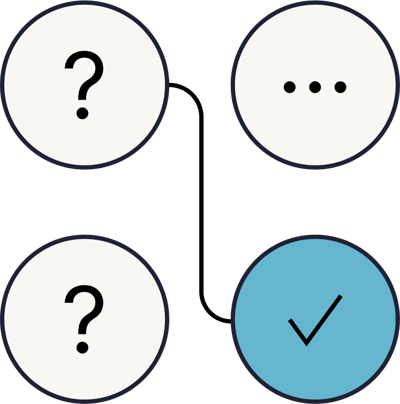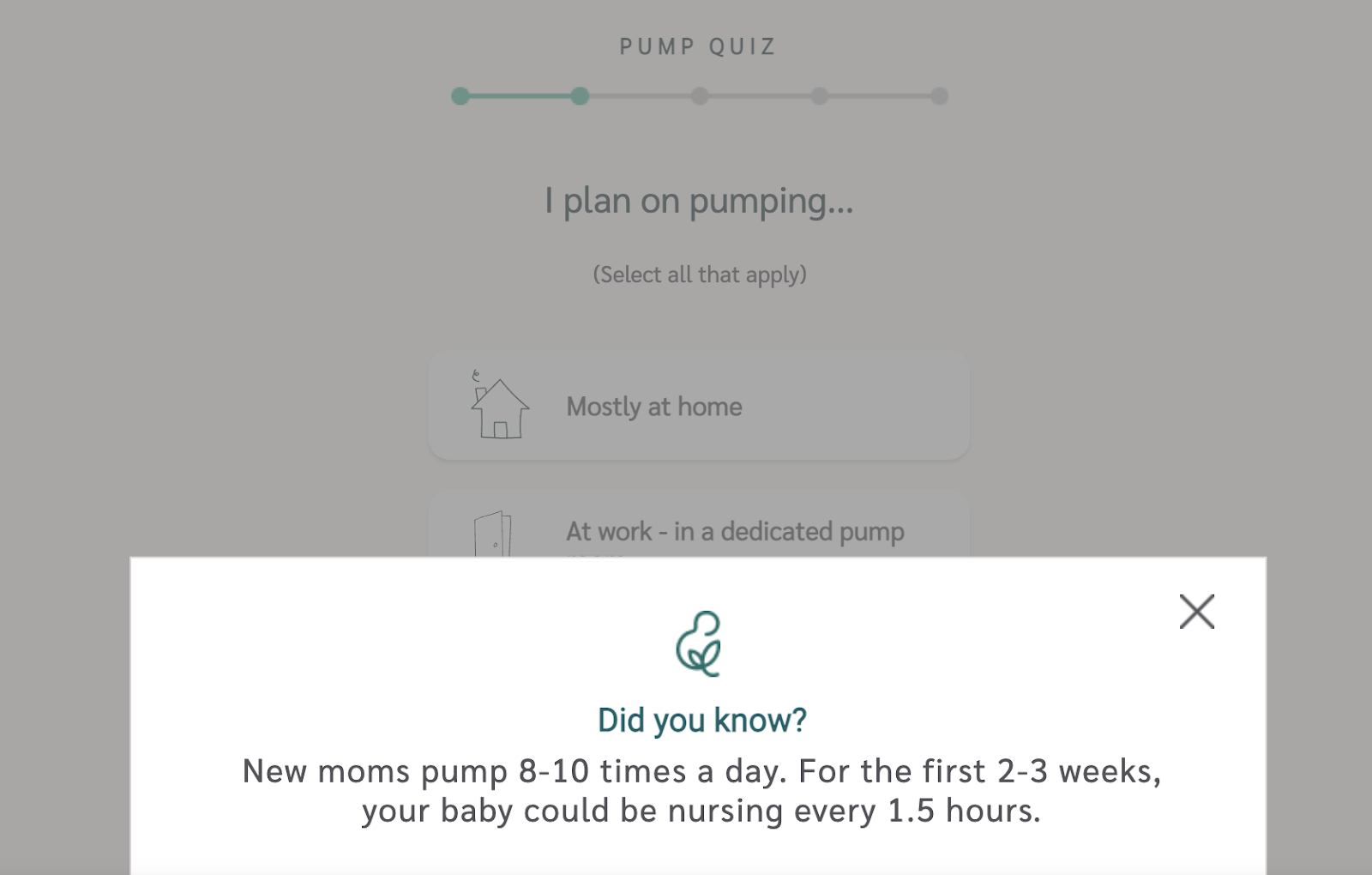Let's Get
In-Quiz-itive
Originally Published on Future Commerce
Written by Phillip Jackson, Together with Digioh
.png?width=250&height=59&name=Future%20Commerce%20Primary%20Logo%20(Black).png)

When it comes to online shopping, I know a thing or two. I've spent years navigating the digital landscape, trying to find ways to connect with customers in a world where competition is fierce and attention spans are short. But there's one thing that I've recently discovered that has turned everything I thought I knew upside down: quizzes.
I'll be honest, I was skeptical at first. I thought quizzes were just a distraction. Brand teams drown in data, and quiz software is often lacking features, or rips you out of the shopping site. Customers get bored and bail. But as I dug deeper, I realized that quizzes are so much more than that. They're a way to truly connect with people, build trust, and establish ourselves as a reliable source of information.
In this guide, I want to take you on a journey with me, to show you the power of quizzes and how they can be used to engage in a conversation with your customer, a discourse! Together, we'll explore why quizzes are a valuable tool for eCommerce brands, and how to create a memorable flow that allows people to learn something while also solving a real-world problem they have.
Quizzes are a powerful tool, especially if you maintain and improve them. We're excited to show you just how powerful a quiz can be!

The Art and Science of Creating a Memorable Quiz
When it comes to creating a memorable quiz, it's all about finding that sweet spot between education and problem-solving, where data meets art. Quizzes should be more than just a series of questions, they should be an experience that leaves a lasting impression on the customer.
Willow makes wearable breast pumps for new moms. I just love what they do in their sizing guide quiz:

Willow's product quiz is all about education. After every answer, they add a little "Did you know?" with all sorts of fascinating facts about breastmilk and how their products can make life easier for breastfeeding moms.
It's like they're giving you a mini-education as you go along! This is just the best because when you share your wisdom with someone, it helps build trust and make them feel valued. Even before they make a purchase, Willow is already bringing so much value to the table. Once you’ve found the perfect product, Willow has left you smarter than when you started the shopping experience.
I strongly believe your customers should learn a thing or two when taking a quiz. You can implicitly teach them about your brand’s values or product offerings by offering them explicit education that takes them down the “happy path” to becoming your ideal customer.
BACKED BY SCIENCE
There’s a science behind leading customers into making explicit choices that reinforce your values. Science suggests that the best way to create lasting memories is to make the experience vivid, emotional, and personal, and to review the memory multiple times.
Asking customers about their bad experiences with other products allows you to use that tactile memory to your advantage, and position your products as solutions to other brands’ deficiencies.
One study that looks into how to create lasting memories is The Impact of Online Quizzes on Student Engagement and Learning (Hillman, 2011), which shows that the introduction of a quiz can help students with memory retention. Other studies suggest that by drawing on vivid, emotionally intense memories, we can heighten the retention of memories!
Asking personal questions is one way to ensure your quiz, and therefore your brand, is memorable. Asking a customer to validate that they learned something from the quiz is another way to ensure that your brand remains memorable.
“THE FUTURE COMMERCE POV”
While we’re all in our jobs to produce outcomes for our businesses, you probably don’t want to be thought of as “just another marketer.
Our Future Commerce audience often thinks of themselves as the eCommerce marketer versions of psychologists, sociologists, and philosophers. I know that sounds wild, but that’s the actual role of the marketer — to turn those concepts into concrete, measurable, business outcomes.
Here are some ways, from the Future Commerce point of view, that we can use a quiz to get into the mindset of the customer and understand their thoughts and behaviors:
.png)
Quizzes don’t just deliver results for customers. They transform the role of the marketer, too.
The Power of a Quiz
Quizzes are short, concise, and straight to the point. Unlike a survey, which can be long and laborious, a quiz helps us get quick, pertinent information, in order to help you find what you’re looking for.
Our partner, Digioh, has a suite of marketing features that help you take this information and integrate it into the rest of the experience, from the website to email and SMS. That means your chat pop-up on the website, coupon codes and offers, and even abandoned cart emails can all reinforce your customer’s answers to the quiz!
So we’re not just making product recommendations, we’re treating customers like people, and tailoring the experience to their needs.
ELEMENTS OF A POWERFUL QUIZ
A rockin’ quiz requires a basic understanding of the difference between first-party data and zero-party data.
Think of zero-party data as information that your customers are happy to share with you on their own accord. They trust you enough to tell them personal information, and that’s super special. This information helps you get to know them better so that you can personalize the entire experience around their preferences. Remember, this is the customer’s data. They’re sharing it with you.
First-party data, on the other hand, is information that you collect from your customers through channels. This can be through inferring their intention, rather than them telling you outright. A good marketer can weave this information together with zero-party data to inform all kinds of marketing decisions. First-party data is your business’ data about your customers’ behavior. This is data that they convey to your brand, but it’s the brand’s data to own and activate.
When both of these types of data come together we can piece together the motivations of the customer. Those motivations can be overarching — they can be your present need (“why are you here today?”) or, they can be future need states (“are you training for a big race coming up?”).
A killer quiz design gathers zero-party data and uses a platform like Digioh to activate it against the rest of the experience.
Digioh brand’s operators to segment by incorporating three key elements: Relevance, Engagement, and Personalization:



DESIGNING A QUIZ FOR 1-1 INTERACTIONS
Imagine having a conversation with a friend. You wouldn’t be holding a clipboard, and taking notes, right? That’d be… weird. We should make approachable, conversational quizzes.
We should also design quizzes by understanding how we want to use the data we collect. Here are some tips:

Make great recommendations.
Your brand makes great products. You should guide your customers to those products. If you serve multiple audiences, across multiple price points, it’s important to understand who they are, what they need, how much they’re looking to spend, and other relevant information so you can serve up a killer set of product recommendations.

Say it with me: actionable!
Only gather what we can use, and it should drive toward a purchase decision. Always. Don’t be that guy at the happy hour who makes professional small talk. We all want to escape from that convo!

Work backward from the ideal customer experience
Do you want to offer a birthday loyalty perk? Better ask them their birthday — or maybe even their zodiac sign! Birthday offers don’t have to be precise to the day, especially if you’re like me and you don’t plan very far in advance.

Tailor preferences based on personality.
Are you an “in the moment” kind of person? Or are you a “doomsday prepper”? Either way, knowing how your customer processes information, and how they see themselves (a worrier, a dreamer, an “up-for-whatever” kinda gal) will allow you to segment based on the customer’s preferences, and time messaging accordingly.

Choosing the Right Quiz Software
When it comes to selecting the perfect quiz software for your brand, it's easy to get caught up in features, integration, functionality, and price points.
You should also evaluate quiz software beyond just its bells and whistles. Look for a software that prioritizes the customer experience. Consider factors such as customization options, support, and data retention policies.
- Integration with your website and other platforms
- User experience and design
- Customization options, such as branding and messaging
- Analytics and reporting capabilities
- Security and privacy features
- Data storage and management
- Pricing and costs
- Ease of use and ease of setup
- Responsiveness and compatibility across devices
- Customer support and resources
- Quiz administration and management tools
- Automation and personalization options
- Quiz types and question formats available
- Marketing and engagement features

The complexity and sophistication of the software depends heavily on how mature your organization is, your budget, the size of the team managing the software, and how customized the experience needs to be to connect with customers.

Choosing the right quiz software is more than just a one-time decision, it's a long-term partnership. You want to trust that your software provider will be there for you, supporting you and your customers every step of the way.

Storing and Using Psychographic Information
There are a ton of implications for storing quiz information. Some data is highly regulated and dependent on where your customers are located.
Besides all of the challenges with storing personal information, it’s important to remember that preferences change over time. Customers’ lives are always in motion! They grow up, get married, have kids, and retire. Over the course of time, your relationship with a customer will change.
OPTIMIZE BASED ON FEEDBACK
Because your customer’s life is in constant motion, there is an expiration date on quiz data! I recommend storing this kind of information for no more than a year. Refreshing quiz data with a customer for 1-1 interactions is a program you should be running on an ongoing basis as a brand.
This means an ongoing cycle where you review data from the quiz, and optimize the quiz over time. There’s no right way to optimize a quiz, but here are some helpful guidelines to keep in mind.

WHERE DO I PUT ALL THIS DATA, AND WHO’S RESPONSIBLE FOR IT?
Who owns this program in your organization depends on a ton of different factors. Sometimes retention marketing teams use this data for messaging segmentation and personalization, so sometimes it makes sense that they are in charge, or at least involved, in the process of quiz design, data expiration, and refresh.
Where do you store all of this rich data? Well, your quiz software will have all of this data on-hand ready for slicing and dicing. But to use the data for interactions you’ll probably need to export it to lots of different software suites: email, sms, headless CMS, ad networks, etc.
This guide wouldn’t be complete without recognizing that there are purpose-built software for segmentations that are customer-centric. They are often called CRM and CDP — or, customer relationship management and customer data platform, respectively. Personally, I think that those acronyms mean something different for every organization. So, generally speaking, whatever platform holds customer data, use that.

PRIVACY AND SECURITY
In some regions of the world, the birth year is a protected piece of personally identifiable information. Ask yourself — do I really need to know the year my customer was born in order to send them a birthday message? Or can I infer that through other means? If you’re a regulated company, like alcohol, tobacco, or cannabis, the answer might be yes. If you’re selling running shoes? Probably not.
And, most marketers aren’t yet aware of this very important point: right now, in the United States, you cannot legally text someone under the age of 18 years old. That means SMS is off-limits for the young’ins, and you should probably be asking for their age before gathering phone numbers for marketing purposes.
Finally, the boring but totally important stuff to note. Regulations like General Data Protection Regulation (GDPR) in the European Union and California Consumer Privacy Act (CCPA) in the United States likely have an impact on what you can store, where you can store it, and for how long. We’re not lawyers, so check with your legal team, your quiz software provider, and other regulatory agencies before embarking on your quiz journey.

Real-World Applications
Our partner Digioh has an abundance of examples from some of our favorite brands. One brand is Andie Swim, whose fit quiz is a beautiful example of all of the points we have covered here in this guide.

They drive personality and engagement throughout, and they never require you to leave the quiz to get more information.
Roughly 15% of Andie’s monthly website traffic takes their fit finder quiz. Helping their customers find the right size is incredibly important because swimsuit shopping is hard enough in person, let alone online. Andie partnered with the Digioh team to create a quiz that is on-brand, fun to take, and effective at recommending the best products for each individual customer.

Customer experience is a high standard for Andie. By purposely using a quiz that focuses on “fit” & embedding it into the main categories section on their website, Andie achieves a high degree of quiz takers who find their perfect fit on the first try. They also achieve a high degree of first-time purchasers who normally wouldn’t purchase a swimsuit online. And beyond this first transaction, their quiz provides extra perks – like lower returns, higher customer satisfaction, and repeat buyers.
POWER FRONTLINE SALES TEAMS WITH DATA
Quizzes aren’t just useful for growing upstart brands that sell exclusively online. For higher-growth brands, many team members outside of the marketing function can repurpose quiz data, extending the usefulness of the quiz, and leading to a higher return on investment for the design and implementation of your quiz. We could also use them to power meaningful interactions with our CX team members.
By designing a quiz that specifically gathers psychographic information about your customers, you can equip your CX team with the information they need to have knowledgeable, personalized conversations. For example, if your quiz reveals that a customer is a fitness enthusiast, a support team member can naturally shift the conversation to talk about new releases in the fitness category. This not only makes the customer feel seen and heard, but it also increases awareness and drives purchase intent.
If we learn how the bigger brands do CX at scale, we can bring some of those same types of data-backed, personalized interactions into our eCommerce-centric experiences. We can drive dynamic emails customized to their customer profile, banners, and pop-ups that all create a “me-centric” experience for the customer.
And I don’t know about you, but I love it when it’s all about me!
Conclusion
In conclusion, quizzes are a powerful tool for engaging with customers and building meaningful, memorable relationships with them.
By understanding the problem that your customer is facing, crafting questions that educate and solve that problem, and avoiding conversational stress points, you can create quizzes that are both enjoyable and effective.
With the right approach, quizzes can help you increase sales, promote customer retention, reduce customer service interactions and returns, and create a lasting impression with your customers.
"Our new quiz increased our eCommerce conversion rate by 2.2X and completely changed how we market our business."
